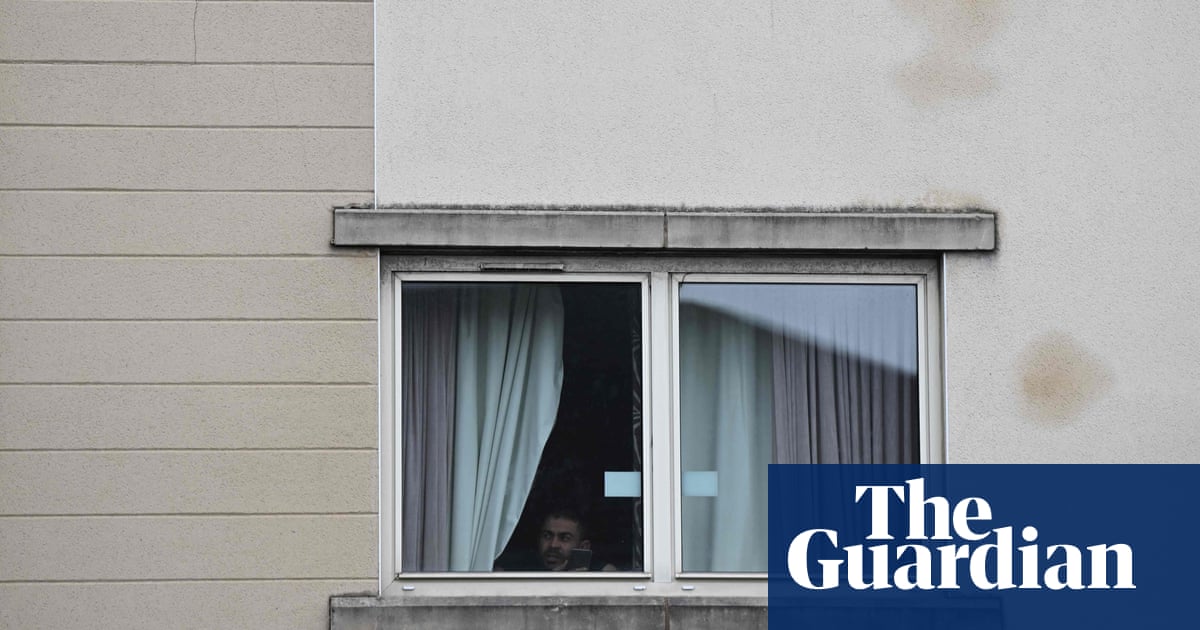Number of asylum seekers left homeless after Home Office eviction soars | Immigration and asylum


There has been a 239% increase in homelessness among asylum seekers evicted from Home Office accommodation including hotels in two years, according to a report.
Data analysed by the Refugee Council found that 12,630 households in England faced homelessness after eviction from asylum accommodation in the two years to the end of September 2023.
When the Home Office has finished processing asylum seekers’ claims they are evicted from its accommodation. Many are granted refugee status.
The report, which is published on Thursday, finds that 970 newly granted refugees were facing homelessness in the last quarter of 2021, but the figure for the third quarter of 2023 had jumped to 3,290 households. Many of the households include children. The report states that the rise in homelessness among newly granted refugees is unprecedented and represents “a moment of significant crisis”.
The chief executive of the Refugee Council, Enver Solomon, said: “The process refugees go through when granted status is setting them up to fail from the very start. A mere 28 days to get on their feet and find a private tenancy with no income and no savings is completely unrealistic. This dysfunctional system is causing an entirely avoidable crisis of homelessness and destitution.”
The report calls for further support from government and local authorities for asylum seekers transitioning to refugee status.
The Home Office, however, said on Wednesday that it would close 50 more asylum-seeker hotels by the end of this month. It announced last month that 100 hotels had been closed with a reduction of 20,000 asylum seekers in hotel accommodation since the end of September 2023.
Despite the closures the number of asylum seekers accommodated since the end of September 2023 has not reduced, suggesting that more people are being squeezed into fewer hotels. The Home Office has previously announced a room maximisation policy in hotel accommodation requiring more people to share rooms.
The government’s use of the overseas aid budget to pay for supporting refugees in Britain is “wreaking havoc” with the Foreign, Commonwealth and Development Office’s development partnerships, according to the Independent Commission for Aid Impact (ICAI), which oversees international aid.
It found that loading the housing costs of UK asylum seekers on to a budget set aside to alleviate poverty abroad was creating “perverse incentives” and that the FCDO had in effect “to take the financial hit” for the Home Office’s overspending.
The chief executive of Care4Calais, Steve Smith, said: “Our volunteers have seen hundreds of people who have been granted refugee status being made homeless over recent months. We know that habitable housing, embedded in communities, provides the best foundation for those granted refugee status, who only want to integrate into society and move forward with their lives.”
after newsletter promotion
The director of the No Accommodation Network, Bridget Young, said: “The closing of hotels should be an opportunity to ensure that everyone awaiting a decision on their asylum claim is provided with accommodation that is safe and good quality, located within communities which are equipped to support them. Focusing solely on closing hotels and speeding up evictions just places people in the asylum system in ever worsening housing or increased risk of homelessness.”
Announcing the latest figures on asylum-seeker hotel reductions on Wednesday, the home secretary, James Cleverly, said: “We promised to end the use of asylum hotels and house asylum seekers at more appropriate, cheaper accommodation; we are doing that at a rapid pace. These closures deliver on the government’s plan to cut the use of hotels in the asylum system and we will keep going until the last hotel is closed.”
The shadow immigration minister, Stephen Kinnock, said Cleverly’s announcement was “celebrating failure”.
“So-called ‘asylum hotels’ didn’t exist before the Tories lost control of the asylum backlog, and Rishi Sunak promised to end them by the end of 2023,” he said. “Yet here we are with around 250 still in use come mid-April.”
Source link




